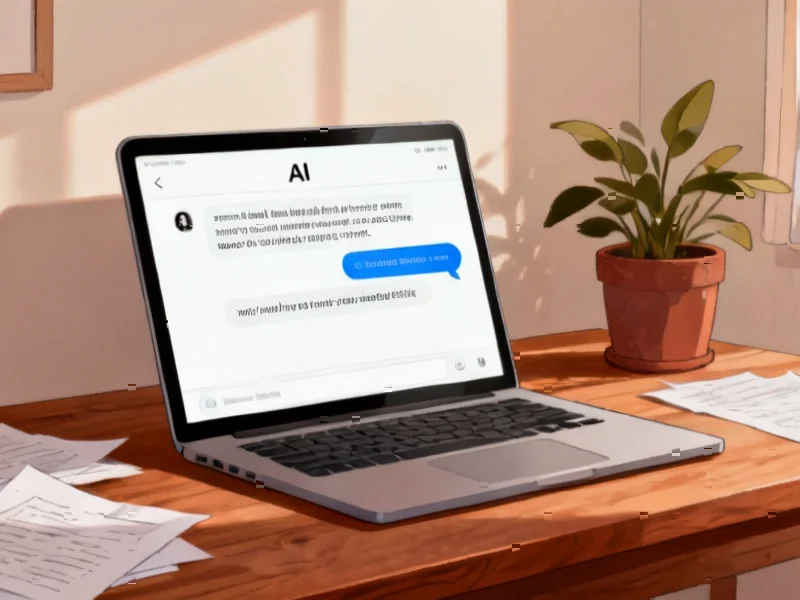According to Tech Digest, Google CEO Sundar Pichai warned the public not to “blindly trust” AI tools in a BBC interview, stating current technology is “prone to errors.” He specifically mentioned Google’s own Gemini AI and urged users to treat it as a supplement rather than a primary source, recommending cross-checking with traditional search. The warning comes as Google faces sharp criticism over its AI Overviews feature, which summarizes search results but has been mocked for erratic and inaccurate responses. Professor Gina Neff from Queen Mary University of London emphasized the particular danger when users ask sensitive questions about health or science. Meanwhile, Google continues pushing forward with AI integration, recently unveiling Gemini 3.0 while defending its search dominance against rivals like ChatGPT.
The AI reliability problem
Here’s the thing: when the CEO of one of the world’s biggest AI companies tells you not to trust his own products, you should probably listen. Pichai’s warning isn’t just corporate responsibility theater – it’s an admission that we’re still in the early, messy phase of AI deployment. The systems are fundamentally designed to please users by generating plausible-sounding responses, even when they don’t actually know the answer. And that creates a real problem when people treat these tools like all-knowing oracles rather than creative assistants.
The user burden shift
What’s interesting here is how much responsibility tech companies are placing on users. Instead of making systems fundamentally more reliable, we’re getting disclaimers and suggestions to double-check everything. But let’s be real – how many people actually verify every AI response? Research from the BBC found AI assistants misrepresented news content nearly half the time. That’s not just inconvenient – it’s potentially dangerous when people are seeking health advice or factual information.
google-s-dilemma”>Google’s dilemma
So why is Google pushing forward with AI integration while simultaneously warning about its limitations? Basically, they’re caught between competitive pressure and technical reality. With rivals like ChatGPT eating into their search dominance, they can’t afford to sit out the AI revolution. But they also can’t deliver perfectly reliable systems yet. The recent Gemini 3.0 launch represents what Pichai calls a “new phase,” but even their latest model still needs that human oversight. It’s a classic case of move fast and warn people about the broken parts.
Where this leaves us
Look, the truth is we’re all becoming AI quality control testers whether we signed up for it or not. These systems are amazing for brainstorming, creative tasks, and rough drafts. But for anything that matters? You absolutely need to verify. The companies building these tools are being honest about their limitations, even as they race to improve them. The question is whether users will actually heed the warnings or just trust the confident-sounding machine.




